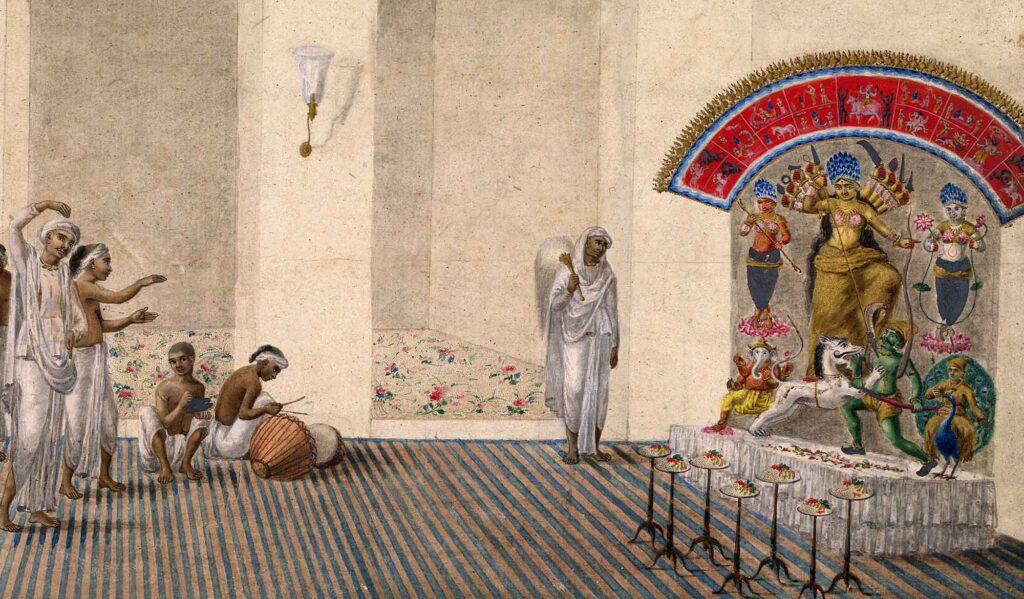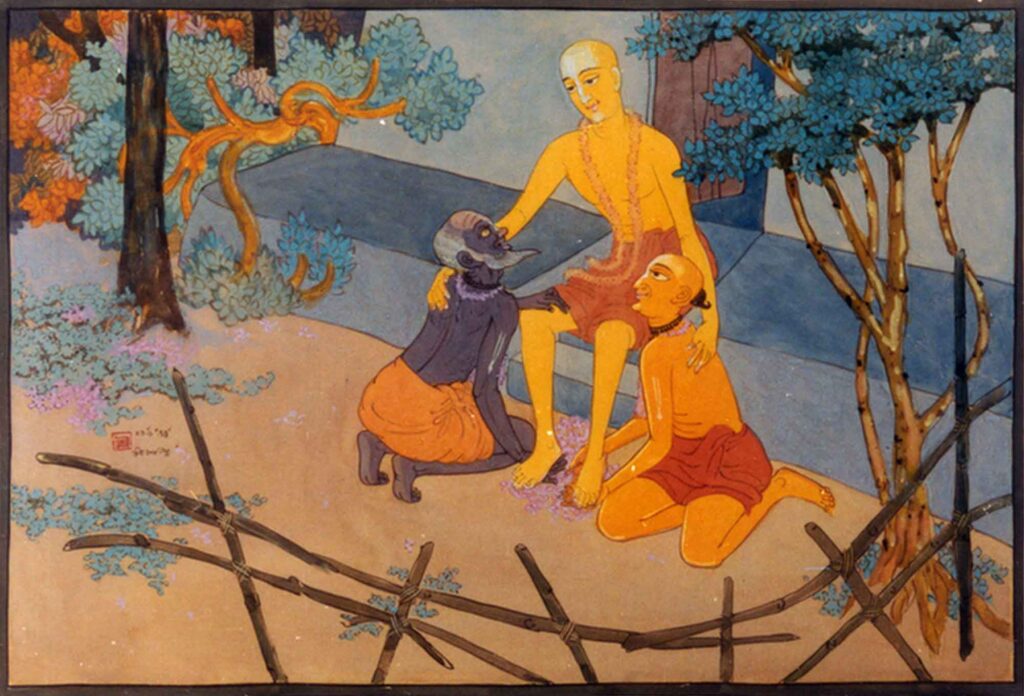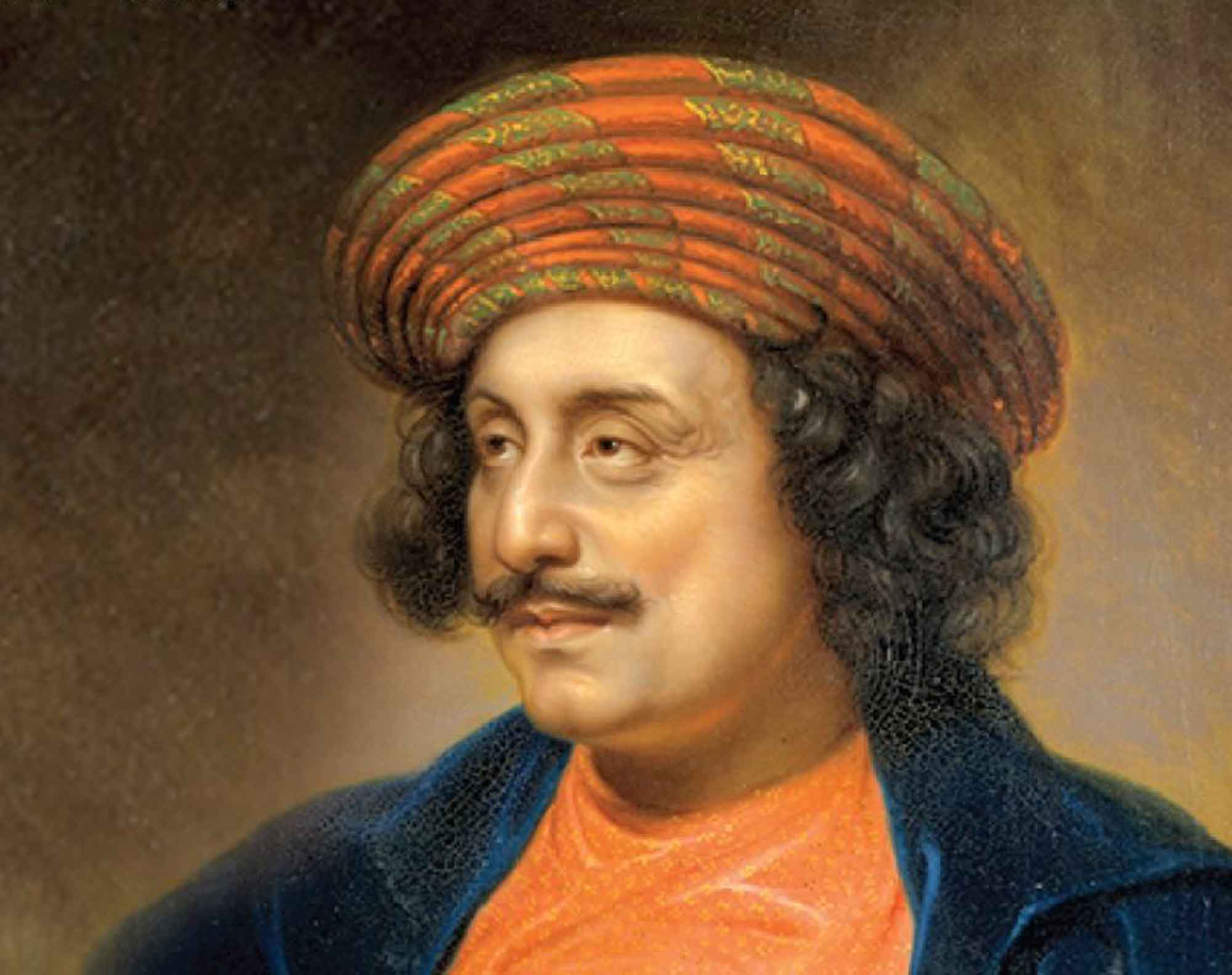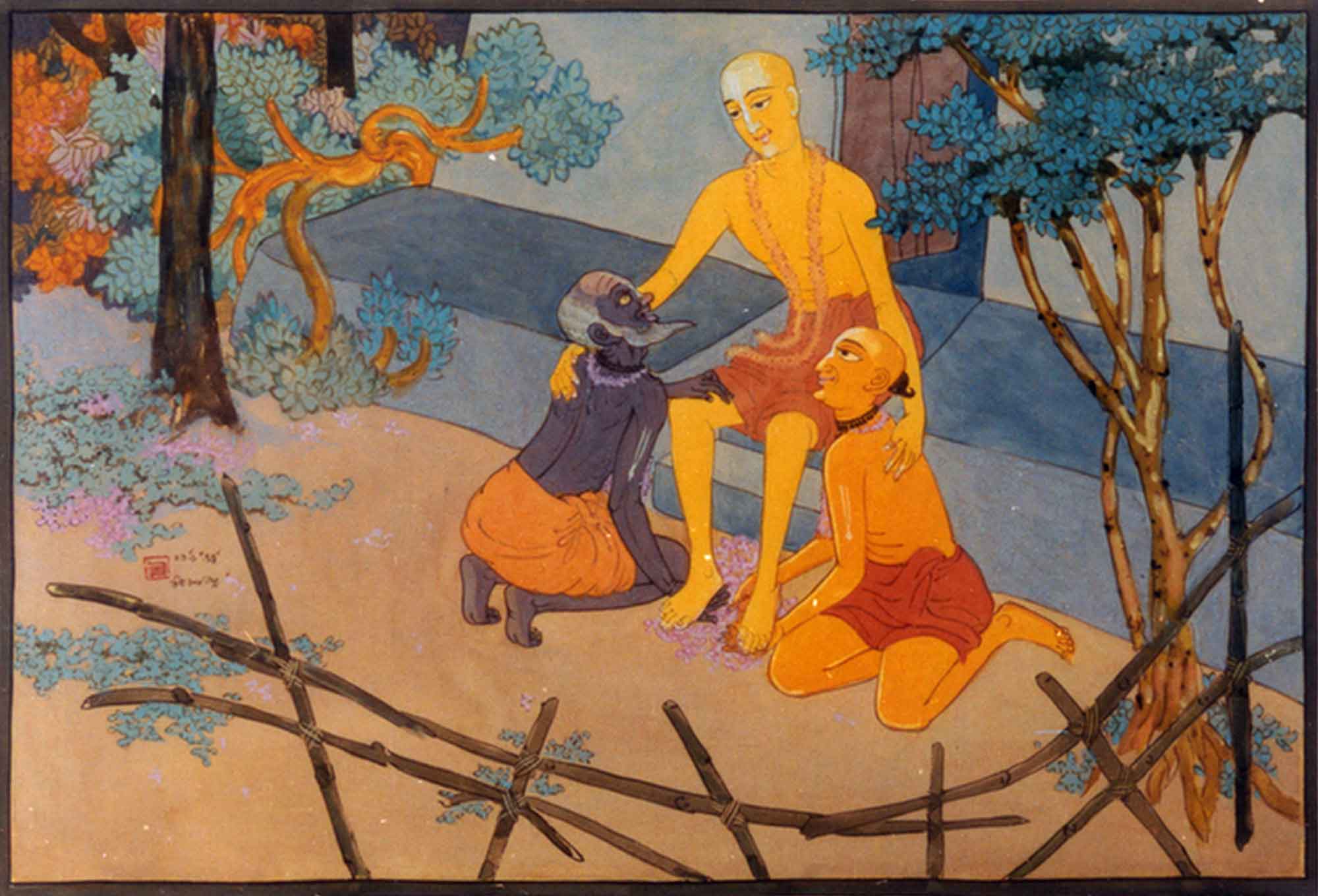Overview
In this article "Pratiṣṭhāśa Parivarjana (Desire for Name and Fame)" from 1896, first published in the 8th Volume of Sajjana Toṣaṇī, Bhaktivinoda Ṭhākura describes the dangers of pratiṣṭḥāśā (the desire for name and fame) and the necessity for all serious sādhakas to uproot this tendency.
(translated by Swami B.V. Giri and Sanātana Dāsa)
To the degree that we endeavour to develop ourselves spiritually, to become religious, to maintain a renounced life, and to deliberate on and discuss jñāna, we desire our own pratiṣṭhā (honour and distinction). This desire contaminates our hearts and pollutes our characters. Although we make a great effort to control lust, anger, greed, illusion and envy, and although we perform severe austerities to control the senses, concealed within our hearts the desire for pratiṣṭhā, in the form of a wild infant animal, continues to grow.
I learn aṣṭāṅga-yoga with a desire to become a famous yogī. If anyone one tells me that my yoga lessons are merely a show, I burn in anger. I discuss and deliberate upon many śāstras in my endeavour to merge into Brahman. If I hear someone say that this process is fruitless, my mind becomes disturbed and I condemn the accuser. We learn ten kinds of dharma, such as control of the mind and the external senses, austerity and truthfulness, and in carrying out our worldly activities we perform daily obligatory religious duties (nitya-karma) and occasional religious duties (naimittika-karma). If someone says that karma-kāṇḍa is simply useless labour, my mind suffers; I become unhappy because my pratiṣṭhā is being made to appear insignificant.
When the karmī, jñānī, yogī and so on search in hope of attaining the fruit of enjoyment and liberation, how can they have any peace? They cannot relinquish the desire for pratiṣṭhā. This desire is very insignificant, however, in those Vaiṣṇavas who have no thirst at all for bhukti and mukti.
Nowadays, the ācāryas of vaiṣṇava-dharma cannot tolerate the slightest disrespect. From the outset, they endeavour to enhance their dignity by placing their feet on the heads of all. It is not unreasonable for an ācārya to receive respect from others. But if he courts that respect for himself, where is his real value? Furthermore, he becomes angry with someone who does not offer him sāṣṭāṅga-daṇḍavat praṇāmas, full prostrated obeisances. Such anger is abominable. Well-mannered people respect an ācārya by offering him a separate seat. This is correct and in accordance with śāstra, but if the ācārya is angered by someone else sitting on that seat, it is most unfortunate. All such behaviour solely arises from the desire for pratiṣṭhā.
Many Vaiṣṇavas have given up their homes and accepted the dress of a renunciant. Peace-loving people who consider that householders have the greatest desire for pratiṣṭhā leave their homes and accept the dress of renunciants. In that renounced situation, however, pratiṣṭhā arises with an even greater intensity than before! If one who has accepted the dress of a renunciant is not offered respect, he becomes particularly angry. If the desire for pratiṣṭhā is present in householder Vaiṣṇavas and Vaiṣṇavas in the renounced order, what can be said of others?
When we collect and contemplate upon the instructions of great people, we understand that as long as we cannot give up the desire for pratiṣṭhā, we cannot consider ourselves Vaiṣṇavas. Real humility is not found in mere words. I say that I am not worthy of being the servant of a servant of the Vaiṣṇavas, but all the while within my mind I think that anyone hearing me say this will glorify me, thinking me a pure Vaiṣṇava. Alas! The desire for pratiṣṭhā does not want to abandon us. For this reason, the best of Vaiṣṇavas, Śrīla Raghunātha Dāsa Gosvāmī, says:
pratiṣṭhāśā dhṛṣṭā śvapaca-ramaṇī me hṛdi naṭet
kathaṁ sādhuḥ-premā spṛśati śucir etan nanu manaḥ
sadā tvaṁ sevasva prabhu-dayita-sāmantam atulaṁ
yathā tāṁ niṣkāśya tvaritam iha taṁ veśayati saḥ
“How will my heart touch this pure sādhu-prema as long as the shameless dog-eating lady in the form of pratiṣṭhā dances there? O mind! You should therefore serve those pure Vaiṣṇavas who are the incomparable commanders of the army of your master, Śrī Kṛṣṇa. They will then remove that dog-eating lady from the temple of your heart and allow prema to enter.” (Śrī Manaḥ-śikṣā 7)
What can we gather from the words of this mahājana, Śrīla Raghunātha Dāsa Gosvāmī? We understand that the desire for pratiṣṭhā can never be removed by studying and discussing śāstra, by hearing instructions from those who have not attained prema, nor by practicing various bodily processes of yoga. It can only be removed by associating with and serving viśuddha Vaiṣṇavas. Having searched for and found such Vaiṣṇavas, it is our ultimate goal to associate with and serve them.
By associating with Vaiṣṇavas, saintliness (sādhutā) will manifest in our hearts and sinfulness will be completely removed. When our hearts are clean, a ray from the sun of prema will enter. This ray, which enriches our hearts with prema, comes from the heart of a saintly Vaiṣṇava. This is the only way to attain prema and give up pratiṣṭhā. It is the natural method to become a sādhu. All other approaches are fruitless labour. In conclusion, attaining one’s eternal transcendental nature is non-different from removing one’s temporary material nature.
By the influence of sādhu-saṅga, kṛṣṇa-prema is obtained and the desire for pratiṣṭhā is removed The nature of kṛṣṇa-prema is such that it is only entrusted into the heart, of viśuddha bhaktas of Kṛṣṇa and it has no other dwelling place. It is passed from one ātmā to another, just as lightning passes from one cloud to another. Gradually, by associating with Vaiṣṇavas, the prema in the Vaiṣṇava’s heart is naturally transmitted to the heart of the jīva. At that time wicked tendencies are removed from the heart of that jīva and a saintly nature manifests in him. All the exalted qualities that purify the heart and that accompany prema, become manifest. It is therefore our duty to remove the desire for pratiṣṭhā by taking sādhu-saṅga.
(Pratiṣṭhāśa Parivarjana (Desire for Name and Fame) was first published in the 8th Volume of Sajjana Toṣaṇī in 1896. This was translated from the original Bengali by Swami B.V. Giri and Sanatana Dasa)













